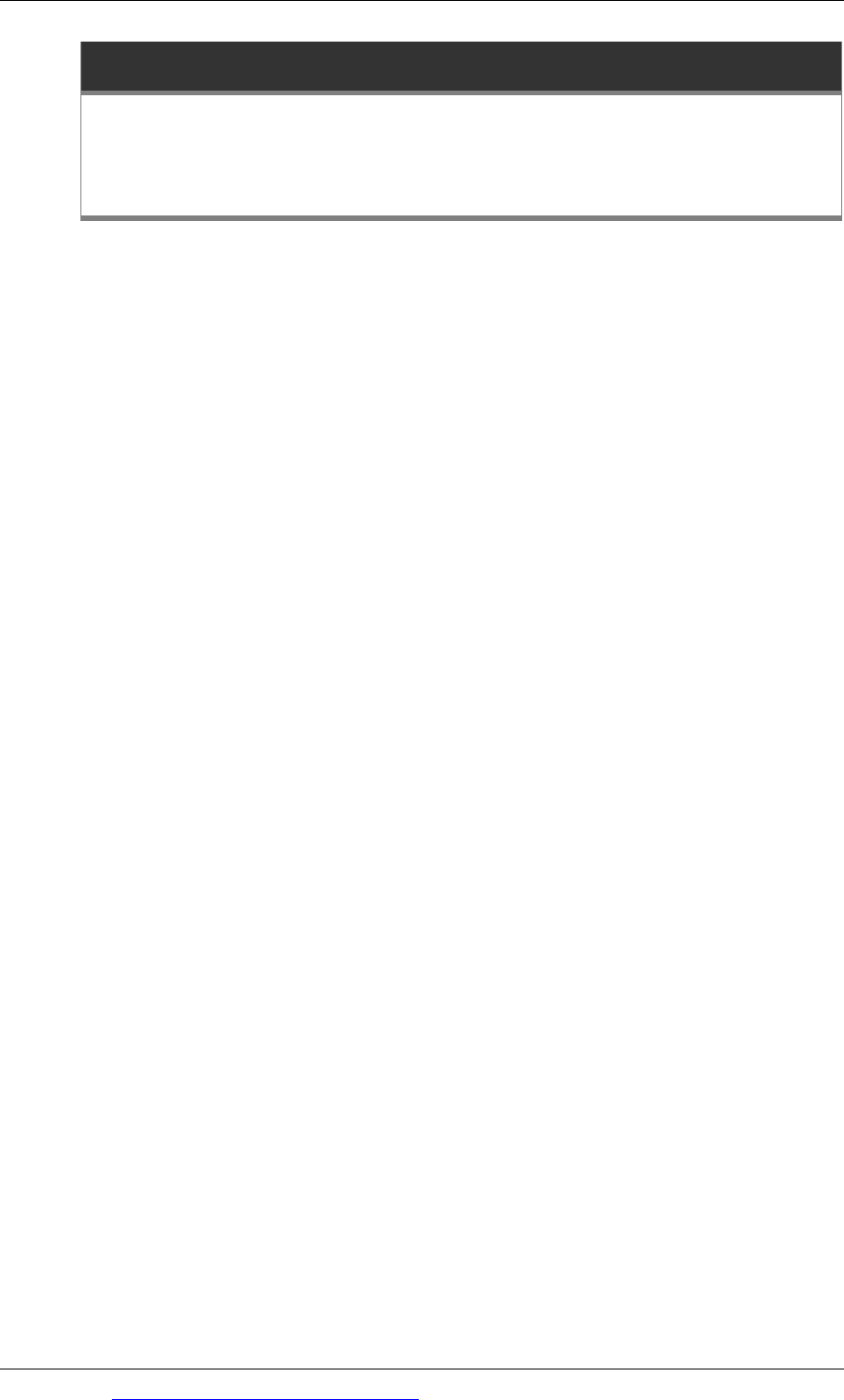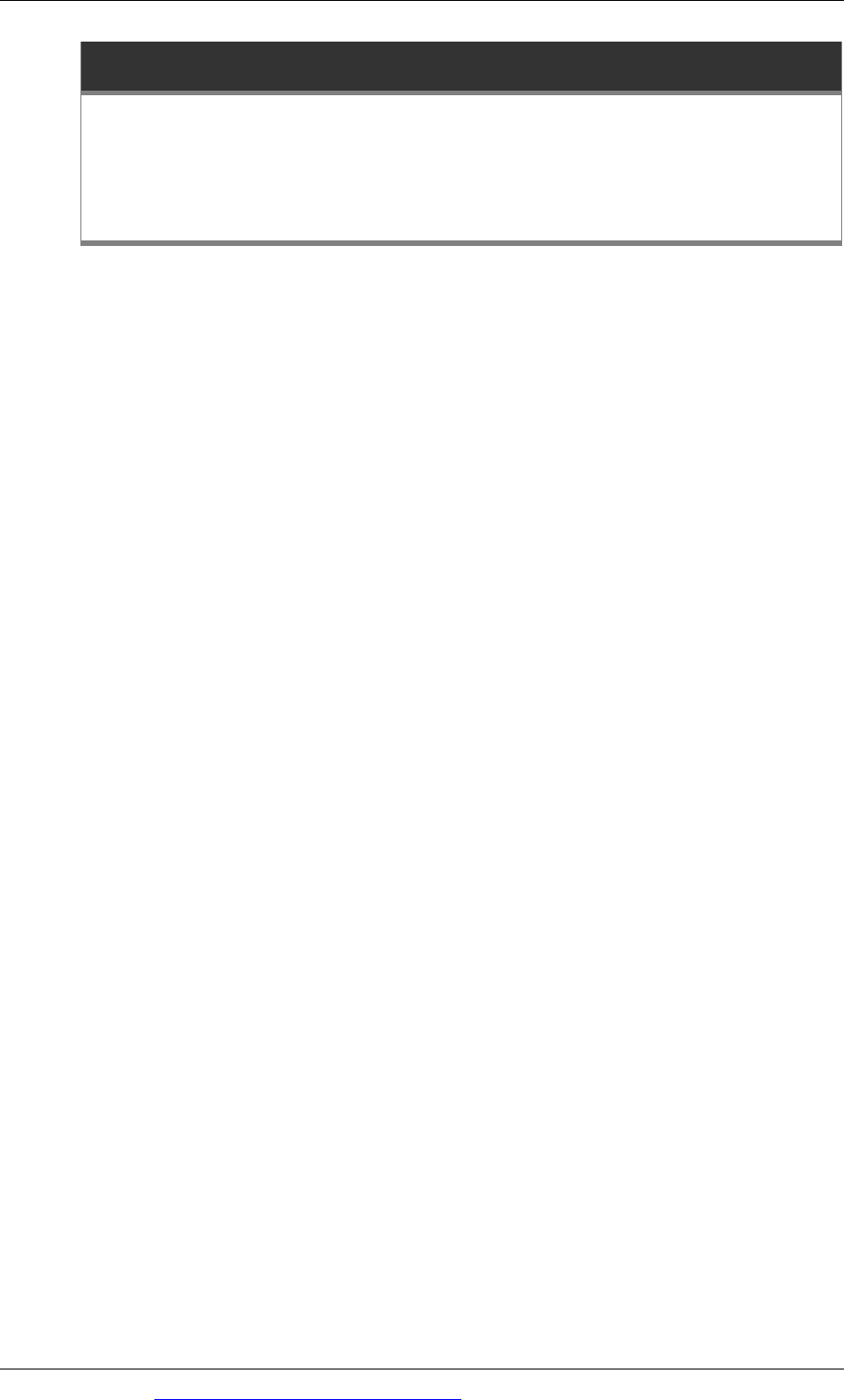ACCA P2 (INT) Corporate Reporting - Study text - 2010 (Emile Woolf)
Подождите немного. Документ загружается.


© EWP Go to www.emilewoolfpublishing.com for Q/As, Notes & Study Guides 523
Paper P2 (INT)
Corporate Reporting
CHAPTER
21
Other issues
Contents
1 Convergence with IFRS and improvements to
IFRSs
2 First-time adoption of IFRS

Paper P2: Corporate Reporting (International)
524 Go to www.emilewoolfpublishing.com for Q/As, Notes & Study Guides © EWP
Convergence with IFRS and improvements to IFRSs
Convergence with IFRS: background
Advantages and disadvantages of harmonisation
Improvements in IFRSs: 2008 exposure draft
1 Convergence with IFRS and improvements to IFRSs
1.1 Convergence with IFRS: background
IAS 1 Presentation of Financial Statements states that ‘An entity whose financial
statements comply with IFRSs shall make an explicit and unreserved statement of
such compliance in the notes (to the financial statements). Financial statements shall
not be described as complying with IFRSs unless they comply with all the
requirements of IFRSs.’
The IASC is not able to force countries to adopt IFRS and so it has been left to
individual countries to decide to what extent business entities should be required to
use IFRS. Within the European Union (EU), all companies listed on an EU stock
market were required to use IFRSs when preparing their group accounts for
financial periods beginning on or after 1 January 2005. Therefore, the first set of IFRS
accounts produced by these companies was for the financial year to 31 December
2005 (or their first year-end date after 31 December 2005).
The EU did not want to transfer all authority for the implementation of accounting
standards to the IASB. It therefore introduced an endorsement mechanism. All
IFRSs must be reviewed by the EU before they are approved for use by listed
companies within the EU. To date, all IFRSs have been adopted with the exception
of certain parts of IAS 39.
Only listed EU groups are required to use IFRS. The decision for all other entities
has been left to the individual member states of the EU. In the UK, for example, all
companies are permitted to use international accounting standards for financial
periods beginning on or after 1 January 2005, in both individual company accounts
as well as in consolidated accounts. Therefore non-listed companies and the
individual companies within listed groups have the choice to move to IFRS or to
continue using UK accounting standards.
The US has also embrace IFRSs. There is currently a project between the IASB and
the US standards setter, the FASB, for convergence of IFRSs with US GAAP. The
two accounting boards have a short-term convergence project which has covered
topics including impairment, research and development, borrowing costs, segment
reporting, government grants and investment properties. Already, the IASB issued
IFRS 8 Segment reporting, which is based on the equivalent US standard.
Other areas that are under discussion are business combinations, consolidations, fair
value measurement, liabilities and equity, performance reporting, revenue
recognition and retirement benefits. For many of these topics that IASB has issued
discussion papers to amend the current treatment and harmonise with US GAAP.

Chapter 21: Other issues
© EWP Go to www.emilewoolfpublishing.com for Q/As, Notes & Study Guides 525
This is a long term project which will continue over the next few years.
1.2 Advantages and disadvantages of harmonisation
There are some strong arguments in favour of the harmonisation of accounting
standards in all countries of the world, and in particular for the convergence of US
GAAP and IFRSs. However, there are also some arguments against harmonisation -
even though these are probably not as strong as the arguments in favour.
Advantages of harmonisation
1 Investors and analysts of financial statements can make better comparisons
between the financial position, financial performance and financial prospects of
entities in different countries. This is very important, in view of the rapid growth
in international investment by institutional investors.
2 For international groups, harmonisation will simplify the preparation of group
accounts. If all entities in the group share the same accounting framework, there
should be no need to make adjustments for consolidation purposes.
3 If all entities are using the same framework for financial reporting, management
should find it easier to monitor performance within their group.
4 Global harmonisation of accounting framework may encourage growth in cross-
border trading, because entities will find it easier to assess the financial position
of customers and suppliers in other countries.
5 Access to international finance should be easier, because banks and investors in
the international financial markets will find it easier to understand the financial
information presented to them by entities wishing to raise finance.
Disadvantages of harmonisation
1. National legal requirements may conflict with the requirements of IFRSs. Some
countries may have strict legal rules about preparing financial statements, as the
statements are prepared mainly for tax purposes. Consequently, laws may need
re-writing to permit the accounting policies required by IFRSs.
2. Some countries may believe that their framework is satisfactory or even superior
to IFRSs. This has been a problem with the US, although currently is not as much
of an issue as in the past.
3. Cultural differences across the world may mean that one set of accounting
standards will not be flexible enough to meet the needs of all users.
Additionally, there are issues on the implementation of IFRS to consider. For some
entities, they will need to amend computer and accounting systems to deal with
differing formats of accounting statements and different recognition methods of
assets and liabilities.
There may an impact on accounting ratios as assets and liabilities are restated in
accordance with IFRSs. For example, a company with significant development costs
will have to capitalise these in accordance with IAS 38. In the previous jurisdiction
they may have been able to write them off as an expense. This increase in assets will

Paper P2: Corporate Reporting (International)
526 Go to www.emilewoolfpublishing.com for Q/As, Notes & Study Guides © EWP
affect the return on capital employed ratio. Any other performance ratios that
change may affect the analysts’ view of performance and could affect internal
performance measures such as profit related pay. Analysts will need to be informed
about the changes so they can continue to assess the performance of the business.
Additionally, employee performance plans may need to be amended so there is no
change in the underlying nature of the bonus scheme. An entity may also need to
look at the need for additional staff training.
1.3 Improvements in IFRSs: 2008 exposure draft
The IASB issued an exposure draft in 2008 entitled ‘Improvements to IFRSs’ and
with a sub-title ‘Proposed Amendments to International Financial Reporting
Standards’.
The exposure draft (ED) was issued as part of the annual improvements project of
the IASB, and similar EDs may well be issued in the future with a similar purpose.
The purpose of the ED was to provide a ‘streamlined process’ for dealing with a
number of non-urgent but necessary amendments to a number of different IFRSs. In
other words, the purpose of the ED was to set out a number of proposed minor
changes to several IFRSs and to introduce the changes if the response to the ED was
favourable.
This avoided the need for issuing a separate ED for each IFRS, with each ED
containing minor proposed changes.
The IFRSs for which minor changes were proposed were:
IFRS 2
IFRS 5
IFRS 8
IAS 7
IAS 18
IAS 38
IAS 38
IAS 39.
For example the proposed change to IAS 7 Statement of cash flows was to specify that
if expenditure is incurred with the object of generating future cash flows, but the
expenditure does not create an asset, the cash flow should be included in cash flows
from operating activities and should not be included in investment cash flows.
The proposed amendment to IFRS 5 was to include a minor clarification about the
required disclosures in the financial statements relating to non-current assets held
for sale.
For the purpose of the P2 examination, you should be prepared to discuss the
nature of this type of exposure draft, and the benefit of a streamlined process’ for
combining minor amendments to different IFRSs into a single exposure draft.

Chapter 21: Other issues
© EWP Go to www.emilewoolfpublishing.com for Q/As, Notes & Study Guides 527
First-time adoption
IFRS 1: First-time adoption
Opening statement of financial position of a first-time adopter
Opening IFRS statement of financial position: exemptions from IFRSs
Presentation and disclosure by a first-time adopter
2 First-time adoption
2.1 IFRS 1: First-time adoption of International Reporting Standards
A first-time adopter of IFRSs is an entity that presents IFRS financial statements for
the first time, and fully complies with the requirements of IFRSs.
The special requirements for a first-time adopter are set out in IFRS 1.
A first-time adopter must adjust its statement of financial position produced
under ‘local GAAP’ to a statement of financial position produced using IFRSs.
This adjustment should be made by ‘retrospective application’ of the IFRSs.
In order to make adjustments to move from a statement of financial position
prepared under local GAAP to a statement of financial position prepared with
IFRSs, a number of prior year adjustments must be made for all the accounting
policy changes. These adjustments are made in the financial statements by
adjusting the opening reserves in the first-time adopter’s opening IFRS
statement of financial position. These adjustments are usually made to the
accumulated profits reserve (retained profits reserve).
2.2 Opening statement of financial position of a first-time adopter
The retrospective application of IFRSs means that adjustments are made to the first-
time adopter’s opening statement of financial position. This is the entity’s statement
of financial position at the date of transition to IFRSs.
IFRS 1 defines the date of transition to IFRSs as ‘the beginning of the earliest period
for which an entity presents full comparative information under IFRS in its first
IFRS financial statements.’
IFRS 1 also states that an entity must use the same accounting policies in its opening
IFRS statement of financial position and throughout all the financial periods
presented in its first IFRS financial statements. These should be the IFRSs that apply
as at the reporting date for the first IFRS financial statements (and any previous
versions of IFRSs that may have applied at earlier dates should not be used).

Paper P2: Corporate Reporting (International)
528 Go to www.emilewoolfpublishing.com for Q/As, Notes & Study Guides © EWP
Example
A company was a first-time adopter of IFRS and prepared its first IFRS financial
statements for the year to 31 December 2005. In its financial statements, it prepared
comparative financial information for the previous financial year.
The previous financial year is the year to 31 December 2004.
The date of transition to IFRS is the beginning of this period, which is 1 January
2004.
The opening IFRS statement of financial position of this first-time adopter is
therefore 1s January 2004. The adjustments made by retrospective application of
IFRSs must therefore be made to a statement of financial position as at this date.
However, the entity is not required to present this opening IFRS statement of
financial position in its financial statements for the year to 31 December 2005. It is
only required to present its normal comparative information for the previous
financial year, although the comparative information is prepared using IFRSs for the
year to 31 December 2004.
The IFRSs used to prepare all the information for the first IFRS financial statements
should be the IFRSs that apply at 31 December 2005.
2.3 Opening IFRS statement of financial position: exemptions from IFRSs
The general rule in IFRS 1 is that in the opening IFRS statement of financial position,
a first-time adopter must:
recognise all assets and liabilities whose recognition is required by IFRSs
not recognise assets or liabilities if IFRSs do not permit such recognition
re-classify items recognised under the previous GAAP as one type of asset,
liability or component of equity if IFRSs require that they should be classified
differently
apply IFRSs in measuring all assets and liabilities.
However, IFRS 1 lists a number of exemptions where these general rules should not
be applied (or need not be applied).
A first-time adopter may elect to use one or more available exemptions from the
application of IFRSs. (One of these is an exemption that allows an entity to
choose to use a ‘deemed cost’ for items of property, plant and equipment.
‘Deemed cost’ is either the fair value of the asset as at the date of transition to
IFRS, or a previous GAAP revaluation at or before that date.)
IFRS 1 prohibits the retrospective application of some IFRSs for the opening IFRS
statement of financial position. For example, IFRS 1 states that estimates made
under IFRSs for the date of transition to IFRS must be ‘consistent with’ estimates
made by the entity under the previous GAAP, unless there is objective evidence
that these estimates were in error.

Chapter 21: Other issues
© EWP Go to www.emilewoolfpublishing.com for Q/As, Notes & Study Guides 529
Example
Suppose that the date of transition to IFRS for ABC Company is 1 January 2004.
Information came to light in June 2004 showing that an estimate for accrued
expenses at 31 December 2003 should have been different. According to IAS 10
Events after the reporting period the information reveals an adjusting event, and the
statement of financial position as at 31 December 2003 should be altered.
IFRS 1 states that this is not permitted. Unless the estimate of accrued expenses for
the statement of financial position as at 31 December 2003 was clearly an error, no
adjustment should be made. Instead, the entity should account for the new
information in its financial statements for the year to 31 December 2004.
2.4 Presentation and disclosure by a first-time adopter
IFRS 1 requires that a first-time adopter must include at least one year of
comparative information in its first IFRS financial statements. (This is why the date
of transition to IFRS cannot be later than the beginning of the previous financial
year).
IFRS 1 also requires a first-time adopter to disclose the following reconciliations:
A reconciliation of equity that was reported under the previous GAAP with the
equity reported under IFRSs, for both of the following dates: (1) the date of
transition to IFRS and (2) the end of the last financial period in which the entity
presented its financial statements under the previous GAAP.
For example, suppose that a first-time adopter presents just one year of
comparative information, and prepared its first IFRS financial statements for the
year to 31 December 2005. The reconciliation of equity between ‘old GAAP’ and
IFRSs should be made for both 1 January 2004 and 31 December 2004.
A reconciliation of the profit or loss reported under the previous GAAP and
the profit or loss using IFRSs, for the entity’s most recent financial period before
adopting IFRSs.
If the entity recognises impairment losses for the first time in its opening IFRS
statement of financial position, it should provide the information that would
have been required by IAS 36 Impairment of assets if the impairment losses had
been recognised in the financial period beginning with the date of transition to
IFRS.

Paper P2: Corporate Reporting (International)
530 Go to www.emilewoolfpublishing.com for Q/As, Notes & Study Guides © EWP
Example
Reconciliation of equity
A simplified example of a reconciliation of equity is shown below.
Previous
GAAP
Effect of
transition
to IFRSs IFRSs
Property, plant and equipment 2,000 300 2,300
Intangible assets 400 (50) 350
––––––––––––––––
––––––––––––––––
––––––––––––––––
Total non-current assets 2,400 250 2,650
––––––––––––––––
––––––––––––––––
––––––––––––––––
Trade and other receivables 1,200 0 1,200
Inventory 800 (70) 730
Cash 50 0 50
––––––––––––––––
––––––––––––––––
––––––––––––––––
Total current assets 2,050 (70) 1,980
Total assets 4,450 180 4,630
––––––––––––––––
––––––––––––––––
––––––––––––––––
Loans 800 0 800
Trade payables 415 0 415
Current tax liability 30 0 30
Deferred tax liability 25 220 245
––––––––––––––––
––––––––––––––––
––––––––––––––––
Total liabilities 1,270 220 1,490
––––––––––––––––
––––––––––––––––
––––––––––––––––
Total assets less total liabilities 3,180 (40) 3,140
––––––––––––––––
––––––––––––––––
––––––––––––––––
Issued capital 1,000 0 1,000
Revaluation reserve 0 190 190
Retained earnings (balance) 2,180 (230) 1,950
––––––––––––––––
––––––––––––––––
––––––––––––––––
Total equity 3,180 (40) 3,140
––––––––––––––––
––––––––––––––––
––––––––––––––––

© EWP Go to www.emilewoolfpublishing.com for Q/As, Notes & Study Guides 531
Paper P2 (INT)
CorporateReporting
Q&A
Practice questions
Contents
Page
Corporate governance and corporate social
responsibility
1 Environmentalreporting 534
Group financial statements: introductory questions
2 PandQ 534
3 P,SandA 535
4 GroupandNCI 536
5 H,SandT 536
6 Disposal 537
7 Stepacquisitionandpartialdisposal 537
Group financial statements: advanced questions
8 TheEdgeleyGroup 538
9 TheAGroup 539
10 Herbert 541
11 Abbeville 543
Foreign currency
12 Orlando 545
13 MancasterandStockpot 545

Paper P2: Corporate reporting (International)
532 Go to www.emilewoolfpublishing.com for Q/As, Notes & Study Guides © EWP
Group statements of cash flows
14 Statementofcashflows 548
15 Bella 549
16 BishopGroup 551
17 GrapeGroup 554
Non-current assets
18 IMPS 556
19 Prima 557
Financial instruments
20 Financialinstruments 558
Substance over form
21 HAM 559
22 Flow 561
Financial reporting for listed companies
23 AZ 562
24 EPS 562
Accounting for retirement benefit costs
25 UniversalSolutions 563
26 IFRS2 564
Revenue, construction contracts and agriculture
27 TheLuckyDairy 565
Taxation
28 Cohort 566
